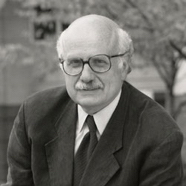United States v. Donald J. Trump
 United States v. Donald J. Trump, the criminal case brought by Special Counsel Jack Smith, may be the most important criminal case in American history.
United States v. Donald J. Trump, the criminal case brought by Special Counsel Jack Smith, may be the most important criminal case in American history.
The case deals with then-President Trump’s unprecedented attempt to stage a coup to overturn the 2020 presidential election and his inciting the violent January 6 mob attack on the Capitol. And, it deals with the first attempt in our nation’s history to block the peaceful transfer of power, a profoundly important principle established by President George Washington.
As the 2024 presidential campaign heats up, an important question facing the country is whether or not Trump, the presumed GOP candidate, will be found guilty of criminal conduct by a jury of his peers.
That is, if the Jan. 6 case ever reaches a jury, because the question of whether a trial takes place at all is currently in the hands of the nine Supreme Court Justices.
The case is pending before the Court on an appeal by Trump, after the D.C. Circuit Court ruled that Trump is not entitled to immunity from criminal prosecution for actions taken as President.
Many legal experts consider Trump’s claim of immunity to be frivolous. But, Trump’s main goal here is to delay any trial beyond the November election, and then, should he win, order his Justice Department to dismiss the case.
Every Supreme Court Justice knows this.
The Supreme Court accepted Trump’s appeal and set oral argument for April 25.
This is a case of extraordinary importance to the country as voters are entitled to know before they vote whether Trump is a convicted criminal.
In past cases of extraordinary importance, the Supreme Court has shown that it can act very quickly.
In Bush v. Gore, the case about counting votes in Florida after the 2000 election, the Court heard oral argument on December 11, 2000, and issued an opinion, with a dissent, the next day.
New York Times Company v. United States, the Pentagon Papers case, was argued on June 26, 1971, and the Court issued its opinion, with dissents, just four days later.
United States v. Nixon, the Watergate tapes case, was argued on July 8, 1974 and the Court issued its opinion just 16 days later.
Trump v. Anderson, the case this month about whether Trump could be removed from the Colorado ballot based on the 14th Amendment, was argued on February 8, and the Court issued an opinion, with two concurring opinions, on March 4, just 24 days later.
None of these cases is more important than the frontal attack on our democracy that is at the heart of the pending January 6 prosecution.
The Supreme Court is widely expected to reject Trump’s frivolous immunity argument.
If the Court follows past precedents for expediting extraordinary cases, it can and should issue its opinion in the Trump case no later than the third week of May. This would be the same time frame the Court used in the Colorado case.
When federal district court Judge Tanya Chutkan paused the January 6 case, pending resolution of Trump’s appeal, she said there would be almost three months of pre-trial preparations to complete before the trial begins.
That timing could be shortened, but even if not, the Trump trial could still begin in late August if the Court issues its opinion by the third week in May.
On the other hand, if the Supreme Court opinion is not issued until the end of its term in late June or early July, it will be much more difficult, if not impossible, to start a trial before some time in October – the heart of the election campaign – and finish before the election.
If the opinion is issued that late, it will be more likely than not that one or more Justices intentionally dragged their feet, perhaps by slow walking a dissenting or concurring opinion, in order to prevent the trial from taking place before the election and, by doing so, possibly tilting the election to Trump. Any such action would be enormously damaging to the country and to the Court’s integrity.
If this Supreme Court follows its own precedent in dealing with extraordinarily important cases, including its recent Colorado decision, the Justices will issue their ruling in May, which will allow United States v. Donald J. Trump to begin a trial in a timely way.
That will allow the American electorate to know whether Trump is a convicted felon before they cast their ballots in November.
____________
Fred’s Weekly Note appears on Thursdays in Wertheimer’s Political Report, a Democracy 21 newsletter. Read this week’s and other recent newsletters here. And, subscribe for free here and receive your copy each week via email.